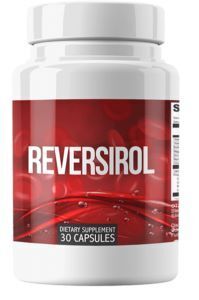December 21, 2020 04:14 ET | Source: ReportLinker
New York, Dec. 21, 2020 (GLOBE NEWSWIRE) -- Reportlinker.com announces the release of the report "Organ and Tissue Transplantation and Alternatives" - https://www.reportlinker.com/p096592/?utm_source=GNW g., kidneys, liver, heart-lung, pancreas, intestines) and the tissue transplantation (e.g., bone, skin, cornea, heart valve) markets, along with the pharmaceuticals that accompany each market.
Also included are experimental xenografts and artificial organs; tissue transplants; and cell transplants (e.g., bone marrow, cord blood, peripheral blood, islet cell). The report touches on the use of fetal cells, stem cells and altered cancer cells.
The arrangement of this report offers an overview of the key elements in the transplantation process: tissue typing, procurement and preservation, immunosuppressants for solid organ and tissue transplants, and postoperative monitoring. International markets are discussed, and information is provided on industry structure and the regulatory environment.
Within each section are discussions of commercialization opportunities for each segment of the market. New or emerging devices, techniques and pharmaceuticals are highlighted.
Profiles of leading companies involved with solid organ transplantation, tissue transplantation, and alternative technologies are included. The report provides information on company placement within the market and strategic analyses of the companies available and emerging products.
An appendix featuring various terms and processes used in transplantation is provided at the end of the report.
This report cites autologous products only in relation to their impact on the market for allografts. It does not include blood products, except for peripheral and umbilical cord blood as a source of stem cells.
By geography, the market has been segmented into the North America, Europe, Asia-Pacific, and Rest of the World regions. Detailed analysis of the market in major countries such as the U.S., Germany, the U.K., Italy, France, Spain, Japan, China, India, Brazil, Mexico, GCC countries and South Africa will be covered in the regional segment. For market estimates, data will be provided for 2019 as the base year, with estimates for 2020 and forecast value for 2024.
Report Includes: - 26 data tables and 37 additional tables - An overview of the global organ and tissue transplantation and alternatives market - Estimation of the market size and analyses of market trends, with data from 2018 to 2019, estimates for 2020 and projection of CAGR through 2024 - Details about organ and tissue transplantation and alternatives, their pathophysiology and affects, and major advancement and latest trends - A look at the regulatory scenarios and initiatives by government organization - Analysis of current and future market dynamics and identification of key drivers, restraints and opportunities such as increasing incidence of organ donations, improved awareness about organ donations, side effects of organ and tissue transplantation and antibiotic resistance infections - Coverage of emerging procedures and products in development and discussion on prevalence of major chronic diseases which initiates organ damage or donation - Discussion on the role of the organ procurement organization and information on transplantation process and preparation and coverage of issues like black market donors - Impact analysis of COVID-19 on organ and tissue transplantation and alternatives market - Market share analysis of the key companies of the industry and coverage of events like mergers & acquisitions, joint ventures, collaborations or partnerships, and other key market strategies - Company profiles of major players of the industry, including Abiomed Inc., Bayer AG, F. Hoffmann-La Roche & Co., Johnson & Johnson, Novartis AG, Pfizer Inc. and XVIVO Perfusion
Summary: The global organ and tissue transplantation and alternatives market was valued at REDACTED in 2019.The market is expected to grow at a compound annual growth rate (CAGR) of REDACTED to reach approximately REDACTED by 2024.
Growth of the global market is attributed to factors such as the growing prevalence of obesity, diabetes, cancer, and other chronic diseases which leads to organ damage, a strong product regulatory scenario, and strong investment in research and development activities by key market players including Abbott Laboratories, Cryolife Inc., Bristol-Myers Squibb, Novartis Ag, F. Hoffmann-La Roche Ltd., Medtronic, Arthrex Inc., Depuy Synthes (Johnson & Johnson), and Allosource.
Although various factors facilitate the global market for organ and tissue transplantation and alternatives, certain parameters such as challenges in HLA sequencing and gaps in supply and demand can constrain market growth.For instance, although there is an increasing need for organ transplants, the shortage of organs worldwide limits the number of transplant procedures performed, and in turn creates an impact on transplant diagnostics procedures.
An increasing number of candidates on the waiting list for organ transplant procedures worldwide further widens this gap of availability and requirement of organs for transplant purposes.
Successful organ and tissue transplantation began to arrive in the mid-1970s when tissue typing coupled with the use of cyclosporine provided more successful graft and patient survival. Today, patient and graft survival for kidney transplants is higher than 90% for the first year post-transplant, and often the success rate is 80% to 90% for five years post-transplant, with some recipients living more than 20 years after their transplant.
Continuing developments in organ procurement, organ preservation, tissue typing, and immunosuppressant use have bolstered successful transplantation surgical techniques. Evolving posttransplant drug and testing regimens have added to the success rate with close post-transplant monitoring and immunosuppressant dosage review. Read the full report: https://www.reportlinker.com/p096592/?utm_source=GNW
About Reportlinker ReportLinker is an award-winning market research solution. Reportlinker finds and organizes the latest industry data so you get all the market research you need - instantly, in one place.
__________________________
Go here to read the rest:
Organ and Tissue Transplantation and Alternatives - GlobeNewswire


